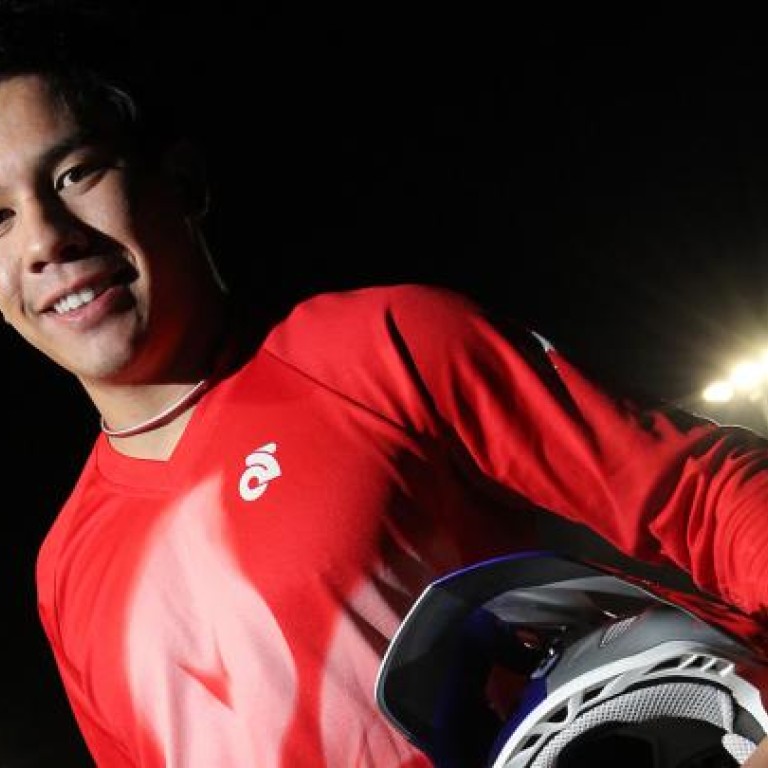
Left field: Wong makes us all look like dopes
Disgraced cyclist's drugs case exposes more than just a positivetest as cycling authorities shy away from the truth
What is with all these cyclists? It seems that those who ride professionally cannot get on their bikes without a jab of a performance-enhancing substance.
Hong Kong had its own "Lance Armstrong" case this past week when it emerged that Asian Games gold medallist Steven Wong had tested positive for drugs and had been banned for two years by the international governing body of cycling.
In the wake of the Armstrong saga, the news that a Hong Kong athlete, too, had been tested positive didn't really come as a huge surprise. Perhaps it is because we have become blasé about it all, resulting in the perception that cycling goes hand in hand with doping just like two star-crossed lovers.
But what was surprising was the how long it took for all this to come out into the public view. Wong, who won the gold medal in the BMX event at the Asian Games in Guangzhou three years ago, tested positive last April. Two months later, in June, after he didn't appeal, the International Cycling Union (UCI) slapped the ban on him.
If you count it back, it is nine months since he was tested positive and seven months since the two-year suspension was meted out on Wong. Why is it that the public only gets to know what happened now?
Why didn't the Hong Kong Cycling Association inform everyone that one of its athletes had tested positive? Why didn't the Hong Kong Sports Institute come out and say one of its former elite athletes had been banned for two years? Why didn't the Hong Kong Olympic Committee own up about their gold medallist?
It would be naïve to think that the authorities hoped to cover up this embarrassment and thought that they could get away with it. Hong Kong is too small a place for them to get away with something like this. So was this an oversight on the part of officialdom?
The story was broken by a Chinese newspaper this past week and since then the wheels have been turning with both Wong and the team he rode for professionally coming out with statements and holding press conferences.
But the fact that, for more than half a year, everything was swept under the carpet is disturbing. This action can have many connotations. It could mean the powers-that-be didn't want to rock the boat with the corporate world and potential sponsors. Or that they didn't want the image of the sport being tarnished in the public and government eye.
Or is it because Wong had turned professional and as such the authorities felt he wasn't under their purview anymore? Wong failed a World Anti-Doping Agency out-of-competition test in Belgium for steroids. He defended himself by saying it was an act of "carelessness" and not premeditation that had resulted in his moment of madness - claiming a skin cream had caused the positive urine test.
In his coming-out story, Wong revealed that he had a severe cut in his groin and in his haste to get it to heal, he used the cream without checking if the gel included any substances that were banned.
This is an excuse we have heard many times before. The athlete either eating tainted meat or using medication in the belief that it was all above board is nothing new.
But this line of reasoning didn't cut the mustard with Sarah Lee Wai-sze. The London Olympic bronze medallist who returned last week with double World Cup success from Mexico intimated that Wong had been silly, if not naïve, to use such medication. Wong has only got himself to blame then if indeed it was an act of carelessness.
Wong read a prepared statement to the press explaining how he had got himself into this mess, but then refused to take any questions. That, too, smacks of arrogance. He should have been brave enough to face the music instead of hiding behind a readymade excuse.
Wong's ban will end in June 2014. But it will be up to the Hong Kong Cycling Association to decide if he will be back to defend his gold medal at the Incheon Asian Games later that year.
The outcome of this episode is that cycling, whose international image has taken a battering, has also seen its profile dented badly at home. And this has been made worse by the actions - or rather non-action - of authorities who chose to stay mum and hope this was just a bad dream, which would go away.

